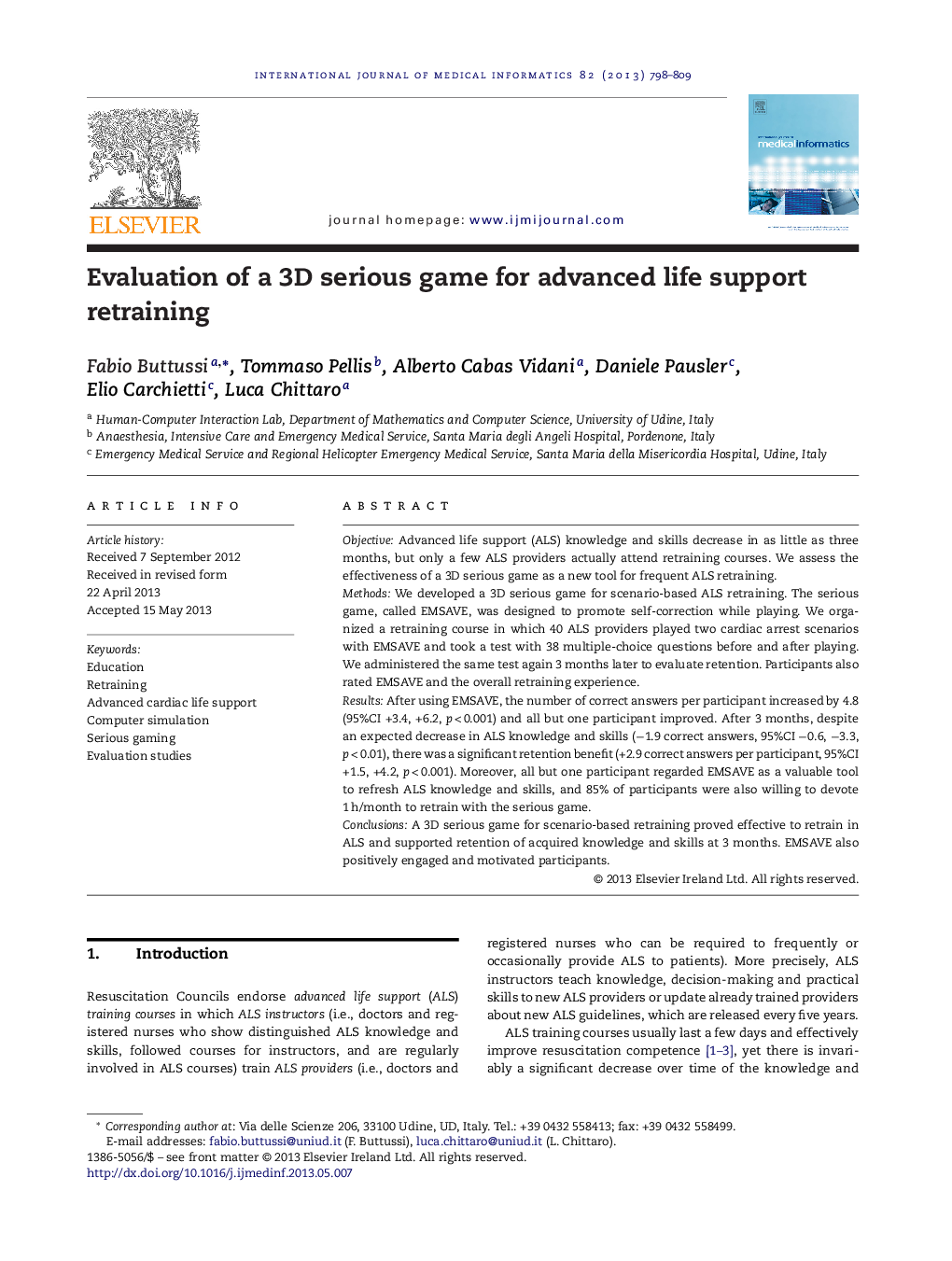| Article ID | Journal | Published Year | Pages | File Type |
|---|---|---|---|---|
| 516259 | International Journal of Medical Informatics | 2013 | 12 Pages |
•Our study shows that a 3D serious game can be effectively used for ALS retraining.•The game allowed participants to gain and maintain ALS knowledge and skills.•The serious game positively engaged participants.•Participants also reported willingness to frequently retrain with the 3D serious game.
ObjectiveAdvanced life support (ALS) knowledge and skills decrease in as little as three months, but only a few ALS providers actually attend retraining courses. We assess the effectiveness of a 3D serious game as a new tool for frequent ALS retraining.MethodsWe developed a 3D serious game for scenario-based ALS retraining. The serious game, called EMSAVE, was designed to promote self-correction while playing. We organized a retraining course in which 40 ALS providers played two cardiac arrest scenarios with EMSAVE and took a test with 38 multiple-choice questions before and after playing. We administered the same test again 3 months later to evaluate retention. Participants also rated EMSAVE and the overall retraining experience.ResultsAfter using EMSAVE, the number of correct answers per participant increased by 4.8 (95%CI +3.4, +6.2, p < 0.001) and all but one participant improved. After 3 months, despite an expected decrease in ALS knowledge and skills (−1.9 correct answers, 95%CI −0.6, −3.3, p < 0.01), there was a significant retention benefit (+2.9 correct answers per participant, 95%CI +1.5, +4.2, p < 0.001). Moreover, all but one participant regarded EMSAVE as a valuable tool to refresh ALS knowledge and skills, and 85% of participants were also willing to devote 1 h/month to retrain with the serious game.ConclusionsA 3D serious game for scenario-based retraining proved effective to retrain in ALS and supported retention of acquired knowledge and skills at 3 months. EMSAVE also positively engaged and motivated participants.
